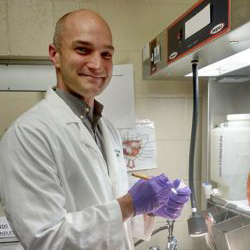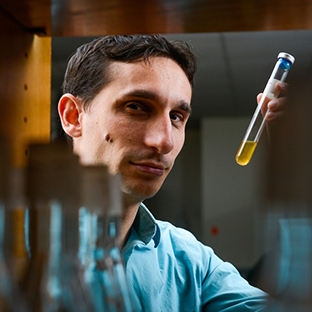FOR IMMEDIATE RELEASE
Media Contact:
Tara DiMilia, 908-947-0500, tara.dimilia@TMstrat.com
George Church, Ph.D., Ting Wu, Ph.D., Steven E. Phillips, M.D. and Michal Caspi Tal, Ph.D., Named Recipients of Bay Area Lyme Foundation’s 2018 Emerging Leader Award
– Genomics, immunotherapy and unraveling the stealth attributes of Lyme disease are the focus of the 2018 Emerging Leader Award projects, designed to inspire new Lyme disease research –
PORTOLA VALLEY, Calif., May 14, 2018—Bay Area Lyme Foundation, a leading sponsor of Lyme disease research in the U.S., announces the recipients of the 2018 Emerging Leader Awards, which are designed to encourage promising scientists who embody the future of Lyme disease-research leadership. George Church, Ph.D. and Ting Wu, Ph.D. will each be awarded a $250,000 grant to launch the Genomic Lyme Disease Research Initiative project at Harvard Medical School, and Michal Caspi Tal, Ph.D. and Steven E. Phillips, M.D. will each receive $100,000 toward therapeutic research related to immunotherapy and an innovative new drug aimed at eliminating chronic tick-borne infections, respectively. Lyme disease is a potentially devastating infection impacting more than 300,000 Americans each year.
 Lyme disease, particularly with chronic or late-stage symptoms, can be a horribly frustrating and debilitating illness.
Lyme disease, particularly with chronic or late-stage symptoms, can be a horribly frustrating and debilitating illness.  Lyme disease is a nationally notifiable disease, recognized and tracked by the federal government
Lyme disease is a nationally notifiable disease, recognized and tracked by the federal government  Sharane Dorrah is on a mission … A passionate hiker, mountain biker, skier, and general outdoors enthusiast who suffered years of debilitating illness due to the unfortunate bite of a Lyme-infected tick, Sharane is determined to ensure that the rest of the world avoid her nightmare through greater awareness and protection.
Sharane Dorrah is on a mission … A passionate hiker, mountain biker, skier, and general outdoors enthusiast who suffered years of debilitating illness due to the unfortunate bite of a Lyme-infected tick, Sharane is determined to ensure that the rest of the world avoid her nightmare through greater awareness and protection. Bay Area Lyme
Bay Area Lyme Dr. Chase Beisel is an Assistant Professor at
Dr. Chase Beisel is an Assistant Professor at